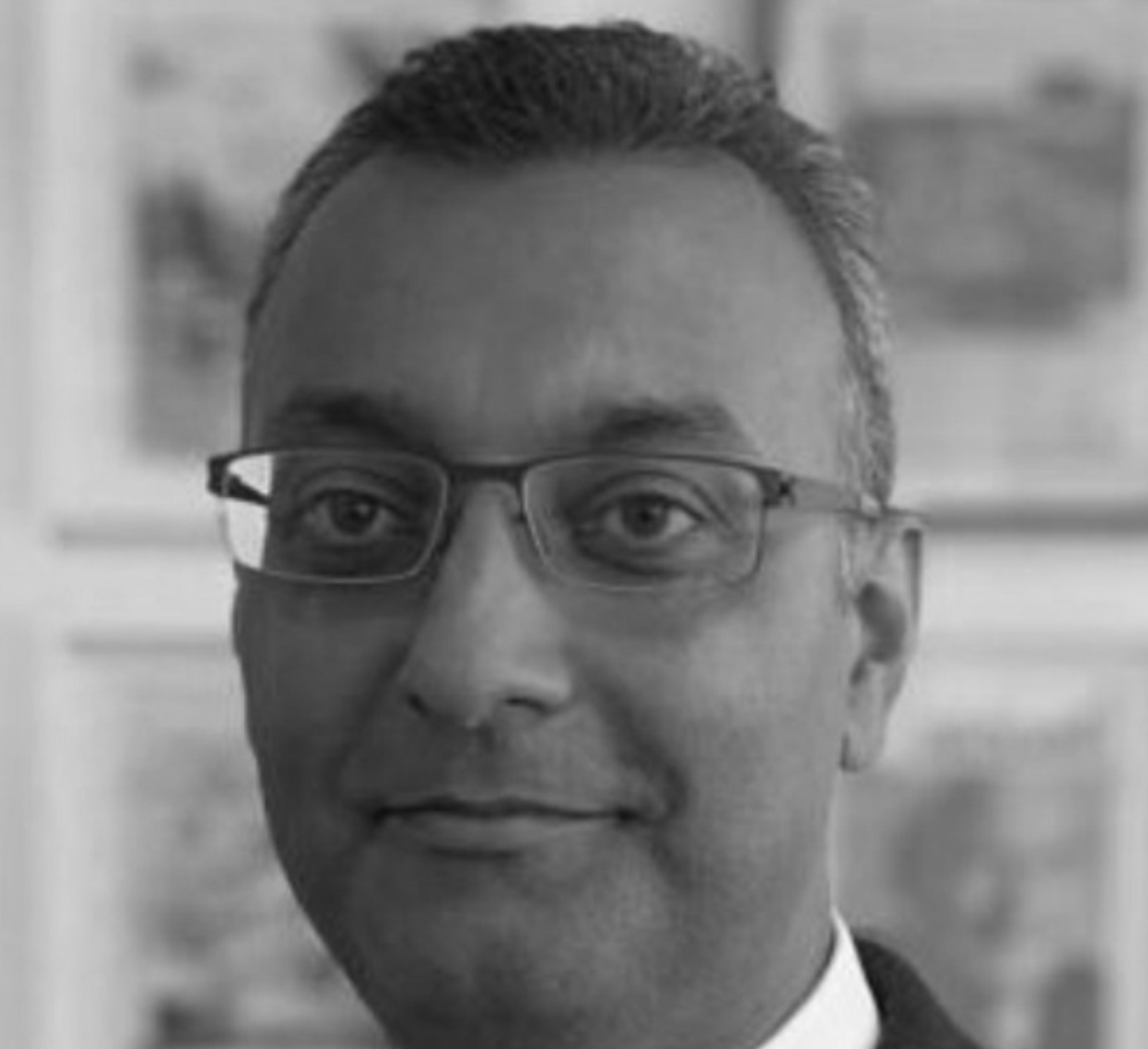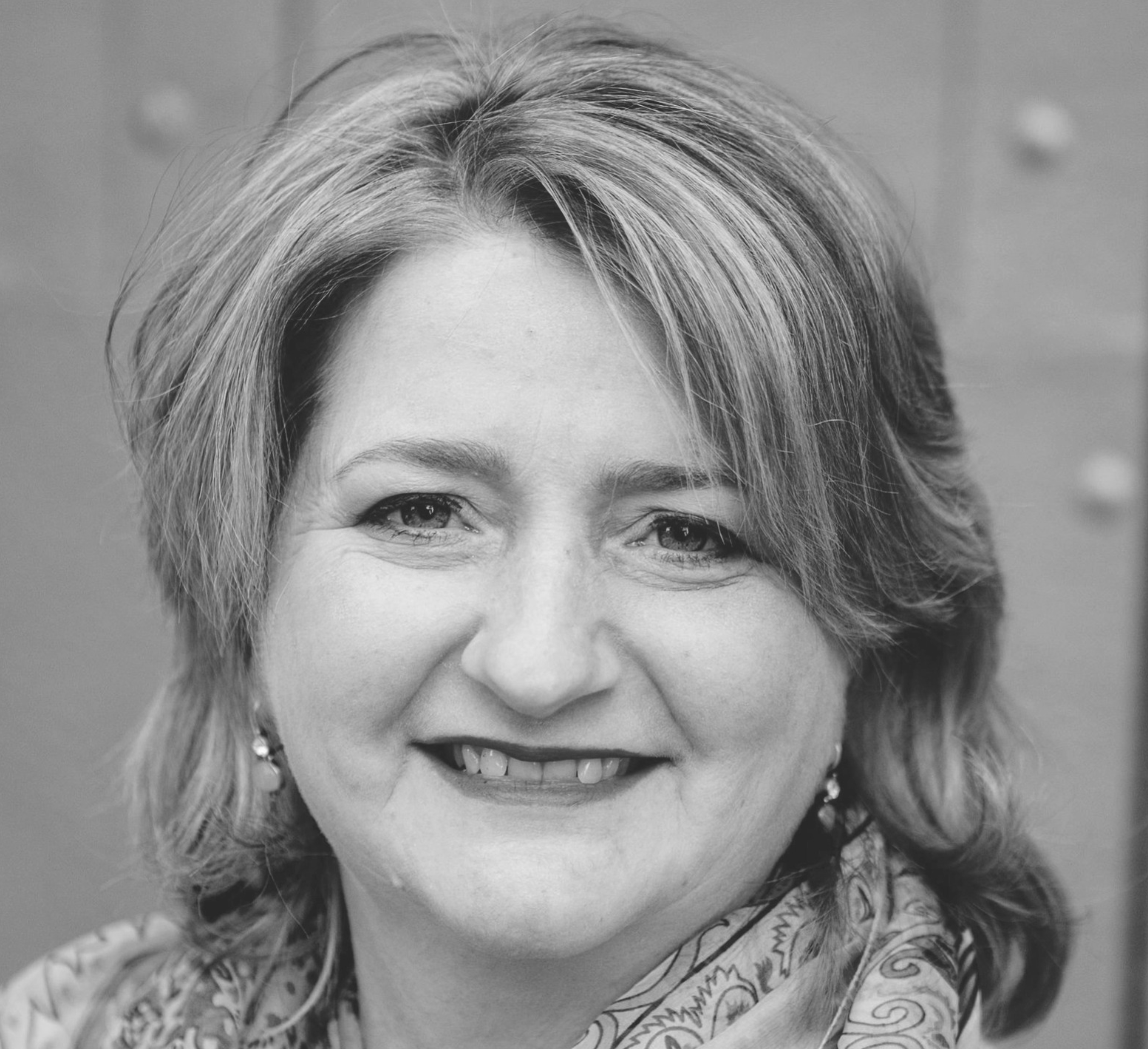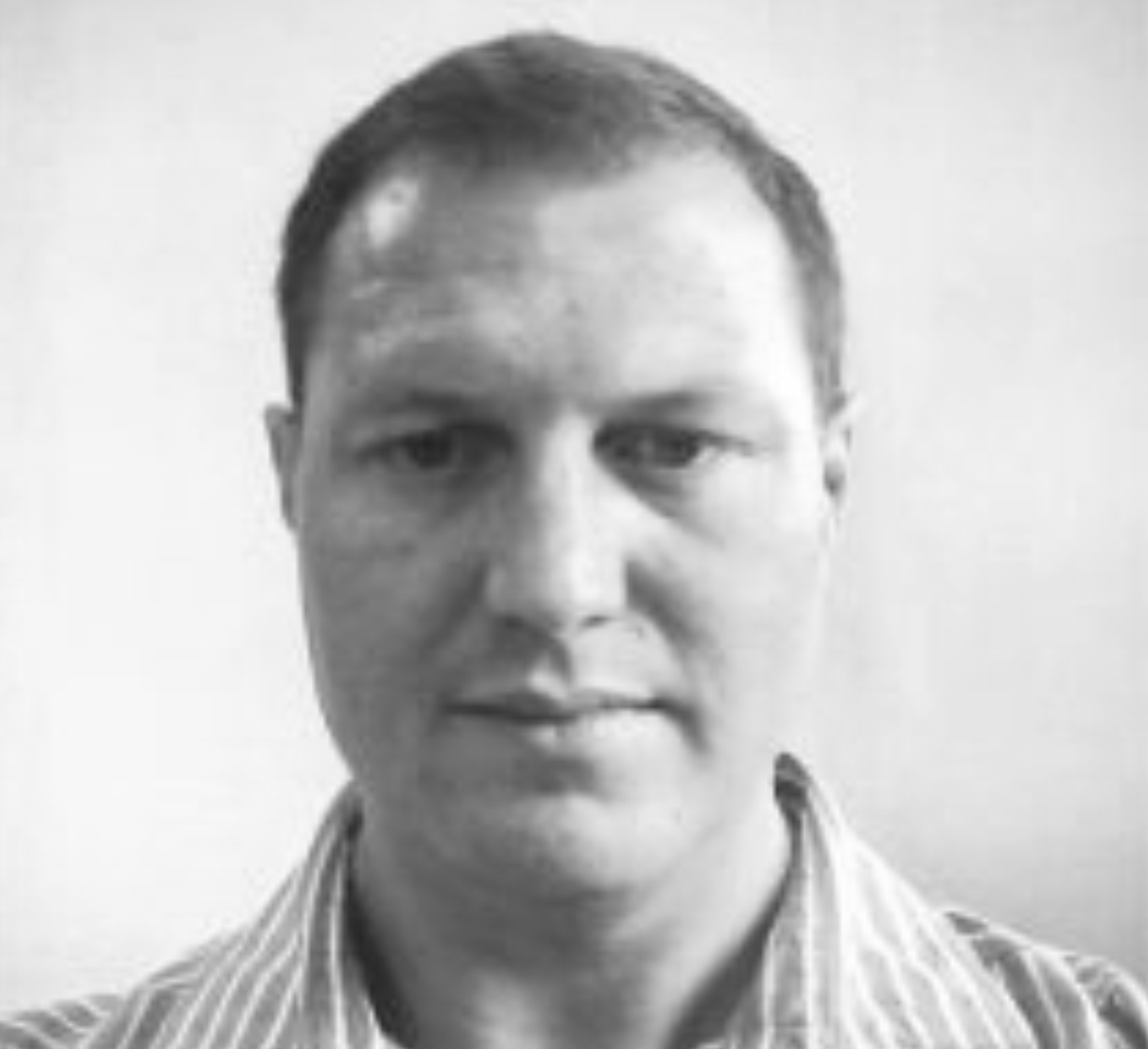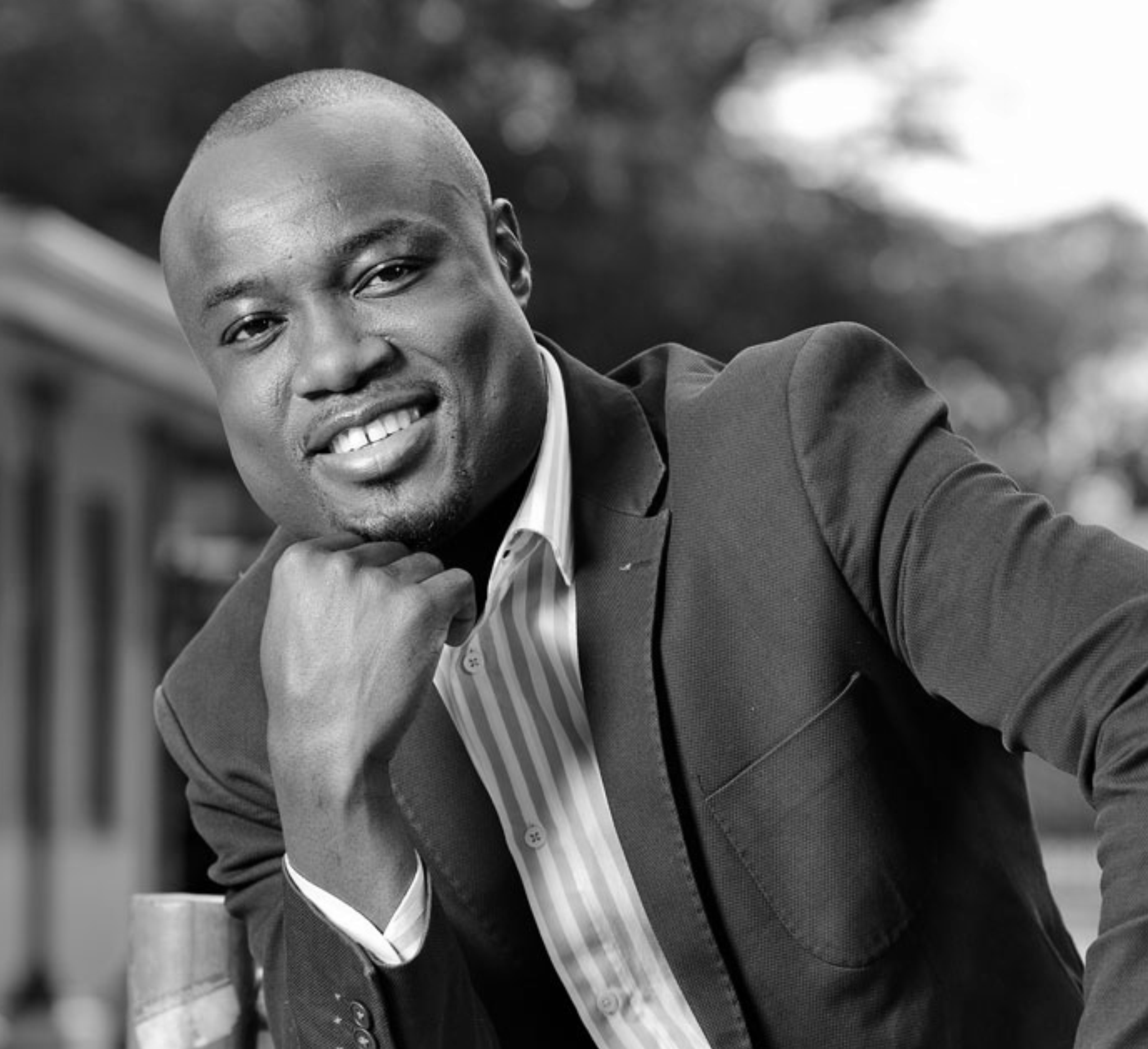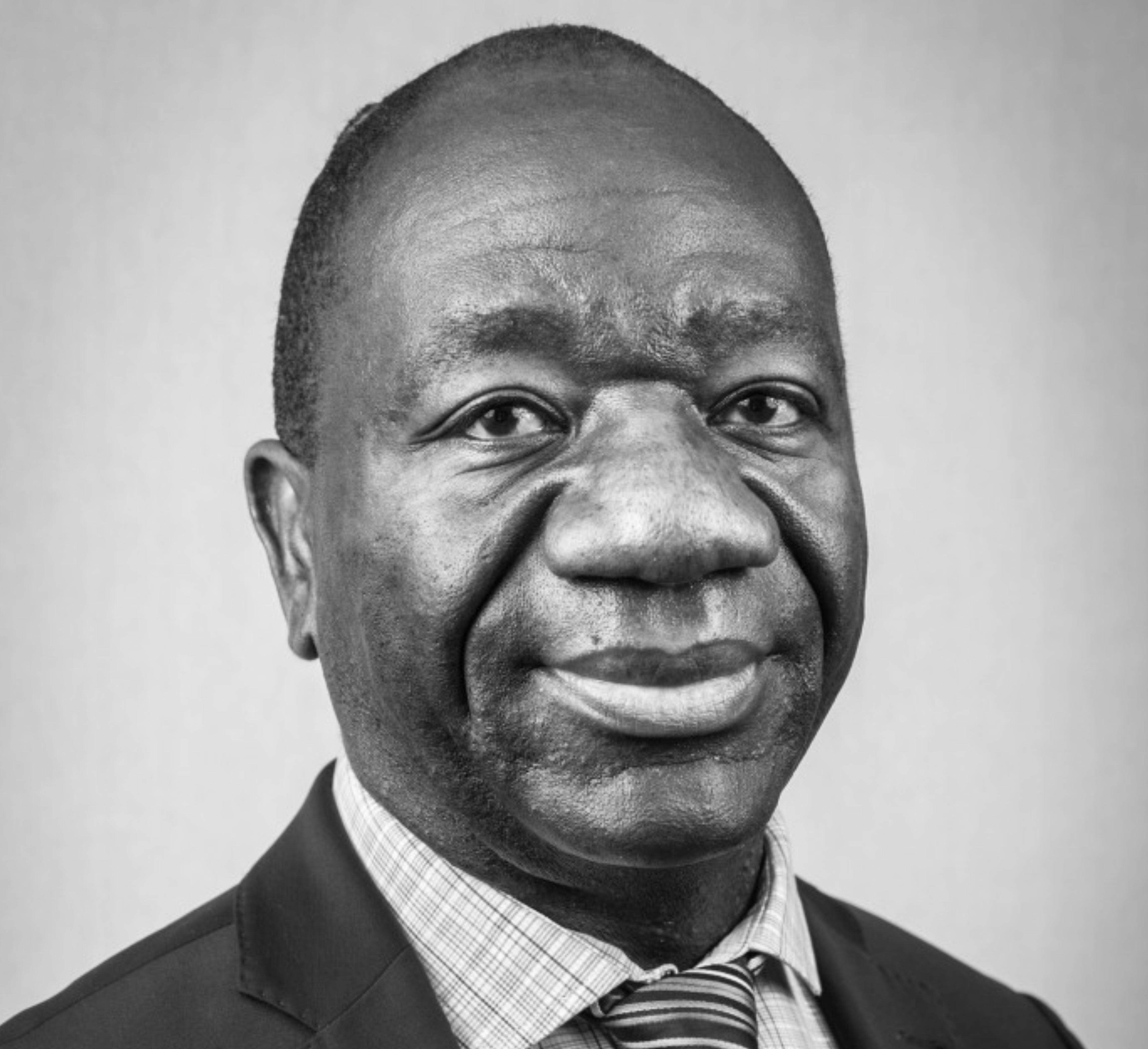160: Sandeep Gandhi
Having left the corporate world to pursue contract advisory roles, Sandeep Gandhi now draws on 20 years of progressive experience with listed South African and multinational companies, highlighting that skills acquired over the years are transferable and not necessarily industry specific.

Today’s podcast is sponsored by Draftworx, which provides automated drafting and working paper financial software to more than 8000 accounting and auditing firms and corporations. CFO Talks is a brand of the South African Institute of Business Accountants.
CIARAN RYAN: What a pleasure it is to welcome Sandeep Gandhi, who has worked in senior financial positions at numerous listed South African multinational corporations, including Adept Advisory Services, Isanti Glass, that used to be called Nampak Glass, Knorr Bremse, which is listed on the Frankfurt Stock Exchange, and Village Main Reef, which I think is a gold mining operation, and Johnson Matthey, a platinum company, which is a FTSE 100 company. Sandeep is a CA with a wealth of international and local experience, and strong views on the evolving role of the CFO. One of these is something we’ve been talking about quite a lot here at CFO Talks for sometime and that is the ability to utilise technology and automation to bring about process improvement. So let’s get into it, welcome Sandeep, where are we talking to you from?
SANDEEP GANDHI: Thank you, Ciaran, I’m talking to you from Johannesburg.
CIARAN RYAN: Okay, I ran through some of the companies that you’ve been involved with in your career, it’s quite an impressive list, but what are you doing now?
SANDEEP GANDHI: Firstly, thank you, Ciaran, for the generous introduction and for inviting me onto your platform. I think I’ve been very fortunate in my career, having worked globally, embracing different cultures, industries and work diversities. It’s afforded me valuable experience, insights and learnings that I still apply today and will share with your listeners. At the moment, I’ve turned to consulting with an advisory firm, assisting their major client with financial performance in their supply chain and sales and marketing areas.
CIARAN RYAN: Okay, so you’re now in consulting, when did you leave the corporate world?
SANDEEP GANDHI: Technically you can say I left it late last year and I’ve been in contract advisory roles since the beginning of this year. It’s a complete change, a different focus, I think it helps to bring my experience to the fore and add value to the organisations that I have engaged with.
CIARAN RYAN: It’s something that we are seeing quite a lot of these days where, you have senior financial executives who do leave the corporate world and they apply the experience that they’ve gained in the corporate world to the broader market. I guess this is what motivated you to do what you’re doing in consulting?
SANDEEP GANDHI: Yes, I think there are a lot of learnings that we’ve already walked through, and we can apply it very quickly to an organisation and avoid them that learning curve. The results that I have seen so far with the engagements that I’ve had has been fantastic. When I worked with Isanti, there was a lot of turnaround needed, a lot of cash to be generated, and knowing where to look helps, and applying your mind to the contracts that have been written, to the processes that are currently there, help to offer quite a fantastic process improvement and generating a lot of cash where the predecessors may have missed maybe.
‘The common trend at the moment is the CFO being the driver towards digital transformation.’
CIARAN RYAN: Let’s get into that in a little bit, the kind of problems that companies are facing at the moment and how they miss opportunities that maybe are quite obvious to people like yourselves. But just talk about the evolving role of the CFO, this is something I know you’re fairly
passionate about. What changes and trends have you noticed over the years?
SANDEEP GANDHI: I think the CFO role has certainly evolved, the CFO of the past has been stereotyped as the back office number cruncher, often referred to as the bean counter, who have the habit of saying no and always cited a budgetary reason for citing no. For me, the core financial and statutory function is a given and the foundation from which a CFO must build on. The trends that I’m seeing is that the CFOs are now cross-functional, we play a very integrated part in the business. We are business partners with strategic and operational focus. We possess strong understanding of the company’s business model and its industry. We are a sounding board to the business and provide that independent perspective, which I think is so needed. We are able to use insights that we’ve gained in the past to constructively challenge commercial and operational teams to ensure that business decisions are supported by solid financial criteria. There are quite a few other trends, the common trend at the moment is the CFO being the driver towards digital transformation, I think the CFO needs to critically assess the digital maturity of a company and what will serve the best needs of that organisation.
I’ve been an early adopter of technology and have automated mundane tasks and system integration, not only in finance, but also in operations. The benefits are endless, there’s cost effectiveness, there’s efficiencies, you’re producing accurate and high-quality financial data that is trusted. There’s also growing demand for real time data that assists the business to quickly detect and address operational issues, and automation. is that vehicle. You just don’t have the time to number crunch, to figure out where the problems are. If you trust your systems and the accuracy is there and the high quality of data, then you know exactly where to pinpoint the problems. Lastly, I think there is also a global trend for companies to take environmental, social and governance, often referred to as ESG, very seriously. The CFO needs to take on the responsibility of being the driver of sustainability and embedding the relevant ESG metrics into a corporate strategy. Recent surveys have shown that consumers and investors are redirecting spend to companies that are transparent
about the environmental impact and sustainability choices. It really borders around non-financial data and being able to collect that and report on it. I think the role of the CFO will continue to evolve and it is important to adapt quickly and lead that change.
CIARAN RYAN: Okay, let’s dig a little bit into your career. Where did you grow up? What drew you to accounting in the first place and where do you feel you made the most impact in your career as a senior finance executive?
SANDEEP GANDHI: I grew up in Durban, I always knew that I wanted to be a professional in business and chartered accountancy was the natural choice. I don’t even think I had a second choice as a career. It was this or nothing. Where I made the most impact in my career was leading process improvements, largely through automation within supply chain and the implementation of an integrated ERP system. It was disruptive, for sure, but in a very positive way. It gave us a lot more control, drove up efficiencies and improved productivity. People development is also very close to
my heart and I take a lot of self-satisfaction for being the catalyst in employee’s career development and well-being. I have been impactful with business optimisation as well and that was largely through business partnering with the commercial and operational teams.
CIARAN RYAN: Okay, maybe just talk in a little bit more detail about one or two of these process automation engagements that you had and what specifically was it that led to the improvements? Are we talking about ordinary things like automating invoices, that type of thing?
SANDEEP GANDHI: I think it goes a little bit beyond that, it’s integrating the manufacturing processes, your warehousing processes into one system. Often you find that these systems run
on different software and there are interfaces within your main ERP system. What we managed to do was, I’ll give you an example, we’ve taken our warehousing system, had it automated and fully integrated into SAP, which meant that the processes drove the automation to pick and choose to put back items onto shelves and in that way minimised human intervention. The parts that we were looking for were really coming out through automation, all the operator had to do was just pick the part up and scan it and send it on to a conveyor belt to the next process. So it’s incorporating that sort of automation where you have full integration, you don’t have to really wait for other interfaces to run before you see your data. It’s all real time and that’s why I mentioned real time data is important because if you’re tracking where you are and you’re finding that you’re not there in the month, you can always deep dive and figure out what’s holding you back.
CIARAN RYAN: The reporting functionality, of course, you get from enterprise software packages like SAP is quite something. The other thing that that is happening is even smaller businesses now are getting access to functionality like that that was previously only available to bigger companies. So you have packages like NetSuite aimed at the midsize market and I think some of the smaller accounting packages are also moving in that direction as well. Of course, SAP is really for the bigger guys and so the full automation you’re talking about, we’re still a long way from seeing that being available everywhere. Would you agree with that?
SANDEEP GANDHI: Yes, I agree. I think it’s also a cost factor, it’s very expensive to implement the fully integrated systems. But I think the CFO would definitely need to look at the maturity that the company has within the organisation and see then what solutions best fit that organisation. But generally speaking, and I think no one would dispute that the further you try to automate, it just removes the manual interventions that you find all these errors in and in eliminating that produces high quality later. So it depends on the organisation that you’re in, what solutions are really available to you to drive this forward.
‘It’s actually disheartening to note that the architects behind these scandals often get off with an effective slap on the wrist.’
CIARAN RYAN: Okay, let’s change gears a little bit here. Accountants are getting a lot of heat these days from all sorts of quarters, mainly to do with scandals such as Steinhoff and Tongaat. Is this heat justified, in your opinion?
SANDEEP GANDHI: The accounting profession is built on the highest integrity, ethical standards and trust. When this is broken, then definitely the spotlight is justified. I think these scandals have far reaching consequences. Not only does it bring the profession into disrepute, but think about the thousands of employees’ livelihoods impacted by the actions of a few that get disrupted. Think about the ripple effect it has on the supply chain should the company go into liquidation. Think about the reputational damage you’ve worked so hard to build. It’s actually disheartening to note that the architects behind these scandals often get off with an effective slap on the wrist. I think it’s been, what, four years now since the Steinhoff scandal but to my knowledge, I don’t think there have been any arrests. There needs to be an increased focus on ethics awareness and I’m glad to see that the profession is addressing this topic. I’ve seen webinars been placed in recent weeks to create this awareness. For me, at the end of the day, the buck stops with you, and you should be the ambassador of promoting the highest ethical and moral values, and it’s simply leading by example.
CIARAN RYAN: What would you say are one or two of the most challenging assignments you’ve had in your career?
SANDEEP GANDHI: For me, my leap of faith as a CFO was with a former JSE-listed gold mining company. I think I was tasked to prepare and submit the integrated financial report in accordance with the JSE-listed requirements. Build a shared service centre from scratch and then also complete a new ERP system implementation, all within three months of joining and without having any prior experience in the industry. Having successfully completed that was a big feather in my cap. But I think the beauty of the profession is that your skills acquired over the years are transferable and not necessarily industry specific. It means that you can adapt, be flexible and trust your abilities. I think your experience also teaches you to hold on to the best practices and learnings achieved throughout your career. This way, you can actually add this value to your organisation in terms of the leadership, process efficiencies and also to the bottom line. I think that’s the space I’m currently in at the moment.
CIARAN RYAN: We introduced the companies that you were involved in at the beginning of this interview, from gold mining to, it’s not platinum mining…
SANDEEP GANDHI: It’s catalytic converters.
CIARAN RYAN: Catalytic converters, yes, and it’s also fairly well known for its research around platinum, and all the way through to glass manufacture. I don’t quite know Knorr Bremse, is that a food company?
SANDEEP GANDHI: No, it’s often confused with soup, they make industrial brake systems for the rail and commercial vehicle industry.
CIARAN RYAN: Okay, that is a huge range that you’ve covered there, and you do pick up very industry specific skills along the way, which, as you say, are transferable from one to another.
SANDEEP GANDHI: No, for sure and I think the basics are always going to be the same, you just need to adapt to the environment that the industry exposes you to, and I think that adaptation is easier with experience, but the skills are very transferable. I’m a very good example of that, multiple industries across my career and I have been able to add a lot of value, bottom line profit, turnaround strategies with contracts with just business in general. So we’re very fortunate from that perspective, there are accounting standards that we need to apply and they are applicable across different industries, it’s just the application thereof and using your skill set to make those changes.
‘I think when you open the eyes of the organisation, I think then the employees are then self-motivated to drive the delivery for that business.’
CIARAN RYAN: Okay, just looking back on your career, you mentioned at the beginning of this interview that some of the problems that you were facing with companies was the ability to go in there with your level of expertise and apply that to maybe companies that usually don’t get to engage with somebody of your financial expertise. I guess we would be talking there about medium, maybe small size companies. What are some of the problems that you’ve been able to identify and come up with solutions to that were not really available prior to your coming in?
SANDEEP GANDHI: I always look at simplification, especially when it comes to reporting. Sometimes we get bogged down too much, pulling different reports and looking at really what the core is that the business needs to be measured on. So I think that’s a starting point, develop your dashboard with the key metrics that you really want to look at. It’s not your full income statement, it’s not your full balance sheet or you can rather apply a condensed balance sheet. So from that perspective, that’s a big win because you save a lot of time and you can use that time to strategically focus on the business and look for other areas of improvement. I think in other areas where things are really missed is if it’s working capital, have we optimised it or have we looked at all the variables and the levers associated with that, and what the big corporates are doing and then replicating that for the smaller or medium enterprises. In terms of your of your profitability, are we optimising revenue, have we looked at all the levers and variables in that space to drive that forward. Relooking at contract negotiations, applying best practices with the tender process and not all companies do that. In a lot of places that I have seen, we must move away from this tick box exercise to really applying your mind. I think when you open the eyes of the organisation, I think then the employees are then self-motivated to drive the delivery for that business. So that’s what we have to offer is all those learnings and successes that we had, which is very easy to replicate.
CIARAN RYAN: Okay, if you look back on your career, what would you like your legacy to be?
SANDEEP GANDHI: I think for myself I am very much a giving person, so I would like to be remembered or my legacy to be that Sandeep is a person who practiced what he preached, he was very principled and a person who cared. I think that’s very important in an organisation, the duty of care, and it doesn’t really sit only in the space that you work in, it needs to be extended toward the organisation. I felt that by doing that, and genuinely, you have a better rapport with all members of the of the company. In that way, the morale of the company is boosted, it’s a happy environment to
to work in. For me, if I’m remembered for that, well, perfect, I’m very happy.
CIARAN RYAN: I think that’s a beautiful way to put it and it’s pretty selfless. In other words, did people benefit from your engagement with them. I think you’ve mentioned as well uplifting the people who are part of your team and helping them advance in their careers is also part of the job. There’s a lot of coaching and training that goes with it, and that’s a point I just wanted to pivot to quickly, was this trend amongst CFOs we’ve looked at, at CFO talks, the kind of people who are ending up in CFO positions in Europe, for example, don’t come necessarily from an accounting background. They can come from all sorts of backgrounds like engineering or town planning and
There have been various studies that have been done. One very important piece, from CEO to CFO, which talks about the competencies of the CFO, which would include things like communication, and it would include things like strategy and it would include things like the ability to communicate properly with different markets, turning the figures into a story. This is why the South African Institute of Business Accountants launched the CFO (SA) designation, which is really to acknowledge people who have the experience and who have made it to the top positions in their field. What do you feel about that? These competencies are not something that you’re going to get taught, right?
SANDEEP GANDHI: No, you learn from experience and I’m not surprised that a CFO could have a non-financial background because as you develop into your career, you’re picking up all your different skill sets, and from that perspective, you’re able to apply it. So you’ll be able to apply
how to lead a team and that team could not just be finance, it could be anything like yours. Similarly, you find in a lot of engineers being CEOs of companies because they have the technical ability, but they don’t have the exposure to finance or HR, for that matter, but having the skill set to be
able to build a very strong team around them and just leading them in the right direction. I think some of the entrepreneurs of the world, if you read their stories, they mention that try to hire someone who’s cleverer than you and you just manage them. I think that’s a concept that gives you the flexibility to play roles that will definitely be outside your comfort zone, but very capable to do that. So I’m not surprised and that trend will probably continue. It’s largely also driven by the skills that person has in that organisation. I think you have a better chance of success in that, where you’ve spent a long time with an organization, where you have the full understanding of the business and the operational elements of it as well. I think that is quite key in this role, is having that full all round, understanding of the business, understanding the operational environment gives you that flexibility
to be a leader any role.
‘With the Covid lockdown I think I found a new passion in cooking, I’ve been using recipes off the internet and following it to the tee, as an accountant would.’
CIARAN RYAN: A couple of personal questions here as we wrap up. What do you do in your downtime?
SANDEEP GANDHI: With the Covid lockdown I think I found a new passion in cooking, I’ve been using recipes off the internet and following it to the tee, as an accountant would. My wife would come and say, but you don’t need so much salt, and I’d say, no but the recipe is saying that, so let me just apply it to the tee. So I’ve been experimenting with that and I’ve found that to be a new-found form of relaxation for myself. I do play a lot of sport and I think, most importantly, spend time with the family. I think you need to have that balance between work and family, and any spare time with the family helps to balance that.
CIARAN RYAN: And you have children?
SANDEEP GANDHI: I have, yes, one child, a girl.
CIARAN RYAN: Yes and of course, that’s very absorbing and demanding in terms of time and attention.
SANDEEP GANDHI: For sure and because I only have one child, when they come back from school, they want to be interacting with you and you’re at work, so it’s difficult to balance that. But I think any quality time spent with them as they’re growing up is invaluable.
CIARAN RYAN: Okay, final question, are there any books that you’d recommend?
SANDEEP GANDHI: The one I’m reading at the moment is called The Leader Who Had No Title by Robin Sharma, it really is about bringing out the leadership from within yourself. It doesn’t necessarily mean you need to hold a title to be a leader. You are a leader as a person, you’ve just got to find it within yourself. I think the story that is narrated is very simple and it can be applied to just about any person. So you have these hidden talents that you don’t realise you have and the book actually talks through it. So it is quite insightful. The other one I have just finished now is The Audacity of Hope by Barack Obama, I’ve been meaning to read this book for a while, and I’ve managed to complete it.
CIARAN RYAN: And what do you get out of that book?
SANDEEP GANDHI: I think it’s just a great story, it was before his presidency, he was still senator at the time the book was written. It just tells a great story about his perseverance throughout his political career to you to get to the stages that he had got to, all the challenges that he had faced. I think it’s a biography for his journey and given the success he has had, I thought this was just before that so what his life then like, so that’s what interested me in the book. It’s very insightful as well and it’s amazing that we all have to go through challenges, and as long as we stick to our guns, these are overcome. I think that’s the sort of message that it sends.
CIARAN RYAN: Okay, Sandeep, we’re going to leave it there. That was a fascinating discussion, I enjoyed the insights that you gave us about where you felt you made the most impact and where you feel businesses can often do with the kind of interventions that you provide as what we might call a freelance gun for hire in the finance field. The fact that you’re making your skills available to a broader market, your many years in the corporate world, and also what you mentioned, what your legacy would be, that you’ve done something to benefit others and you’ve uplifted them along the way, I think that’s quite an inspiring message for anybody listening to this. So I want to thank you for coming on, sharing those insights and wishing you the very best for the future from here on.
SANDEEP GANDHI: Thank you, Ciaran. Thank you for the opportunity, it was a pleasure talking to you and you’re most welcome.

